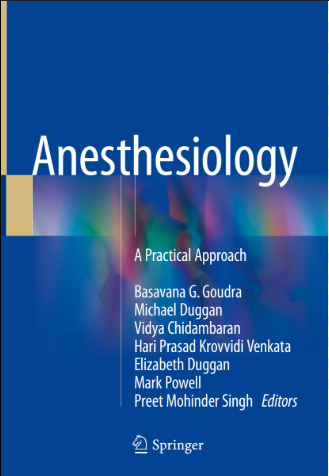Anesthesiology Textbooks: Key Learning Resources
Anesthesiology is a vital medical specialty focused on the practice of anesthesia, pain management, and critical care. For those pursuing a career in anesthesiology or seeking to deepen their knowledge in this field, textbooks are invaluable resources. These texts offer comprehensive insights into various techniques, medications, patient care strategies, and cutting-edge research in anesthesia. Here, we highlight some of the key anesthesiology textbooks that are essential for both students and professionals in the field.
1. “Basics of Anesthesia” by Ronald D. Miller
One of the most renowned books in anesthesiology, Basics of Anesthesia provides a foundational understanding of anesthetic practice. It covers topics such as the pharmacology of anesthesia, anesthetic agents, and the management of patients in the perioperative period. Written by Ronald D. Miller, an expert in the field, this book is a go-to resource for both newcomers and seasoned professionals.
Key Features:
-
Clear and concise explanations of anesthetic techniques.
-
Covers the essentials of anesthetic agents and equipment.
-
Suitable for students and residents in anesthesiology.
2. “Anesthesia: A Comprehensive Review” by Brian A. Hall and Robert C. Chantigian
Anesthesia: A Comprehensive Review is an excellent resource for those preparing for board exams or looking to deepen their understanding of anesthesia. This textbook is structured around practical scenarios, making it particularly useful for residents. The authors focus on clinical concepts and detailed explanations of anesthesia practices.
Key Features:
-
Focuses on clinical scenarios and board exam preparation.
-
Includes multiple-choice questions and detailed answers.
-
Provides insights into anesthesia management across various specialties.

3. “Clinical Anesthesia” by Paul G. Barash, Bruce F. Cullen, and Robert K. Stoelting
Clinical Anesthesia is a comprehensive textbook often referred to as the “bible” of anesthesiology. The book delves into the science of anesthesia, its application, and patient safety. With contributions from several experts in the field, it is perfect for anesthesiologists who want an in-depth understanding of anesthesia in clinical practice.
Key Features:
-
In-depth coverage of anesthesia principles and practices.
-
Focuses on patient safety and risk management.
-
Includes updates on current trends in anesthesia research and techniques.
View more on Google
4. “Morgan & Mikhail’s Clinical Anesthesiology” by John F. Butterworth and David C. Mackey
This textbook is widely regarded as one of the best for anesthesiology students. It offers a user-friendly approach to complex topics, with detailed explanations of clinical anesthesiology principles, anesthesia machines, and advanced topics like neuroanesthesia. It is a fantastic resource for residents and practitioners seeking to enhance their clinical expertise.
Key Features:
-
Clear, approachable writing style with clinical case studies.
-
Covers both basic and advanced anesthesiology topics.
-
Provides a practical approach to anesthesia management.
5. “Anesthesia and Co-Existing Disease” by Roberta L. Hines and Kathryn M. Marschall
This textbook focuses on anesthesia management for patients with various co-existing diseases, a crucial aspect of anesthesiology practice. It provides a thorough understanding of how to assess and manage patients who have multiple comorbidities, making it essential for anesthesiologists dealing with high-risk patients.
Key Features:
-
Focuses on anesthesia in patients with comorbid conditions.
-
Provides evidence-based strategies for managing high-risk patients.
-
Discusses complications and how to mitigate them in complex cases.
6. “Pediatric Anesthesia” by Jeffrey L. Apfelbaum
For those specializing in pediatric anesthesiology, Pediatric Anesthesia is a comprehensive guide to the unique aspects of anesthetizing children. The book covers everything from preoperative evaluation to the management of pediatric patients during surgery. It’s an invaluable resource for anyone working with pediatric patients in an anesthesia setting.
Key Features:
-
Focuses on pediatric anesthesia techniques and challenges.
-
Covers the differences in drug dosages and procedures for children.
-
Includes guidelines for pediatric anesthesia in various surgical procedures.
Conclusion Anesthesiology Textbooks
Anesthesiology textbooks are essential resources for students, residents, and experienced professionals alike. These books offer a wealth of information on the technical, clinical, and scientific aspects of anesthesia. Whether you’re just beginning your journey in anesthesiology or looking to refine your expertise, the right textbook can serve as a powerful tool to enhance your knowledge and improve patient care.
For those committed to mastering the field of anesthesiology, the books mentioned above provide the foundation needed to excel. Each one offers unique insights into specific areas of anesthesiology, from basic principles to advanced clinical practices, ensuring that you stay at the forefront of this ever-evolving specialty.
Learn more about Dental books

